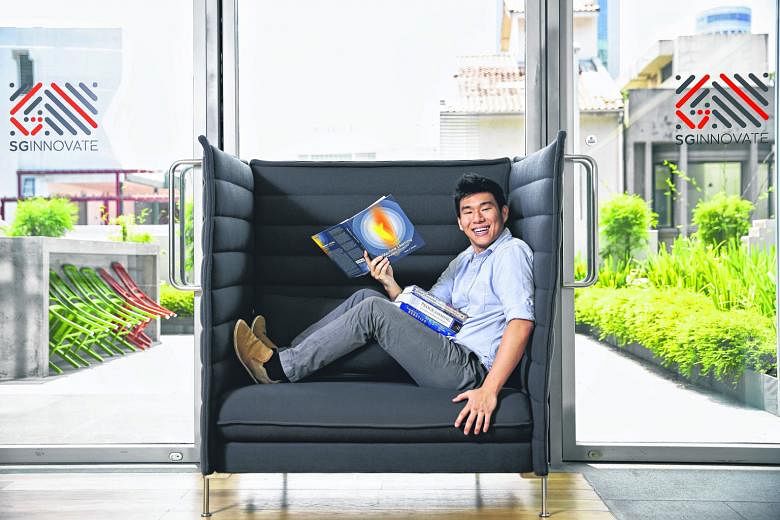Back in 2015, Mr Yap Jia Qing was just a freshly minted law student at the National University of Singapore (NUS) who had zero programming experience.
But that did not stop the 22-year-old, who discovered a new passion for artificial intelligence (AI) and robotics, from signing up for a nine-week Web development boot camp and spending hours working through online courses in deep learning.
He subsequently took on positions as an instructor in data science and deep learning at two institutes here.
So inspired was he by the disruptive potential of technology that when he had just two weeks to go before his final exams in law last year, he decided to attend a two-day tech conference instead of study - because "so much exciting stuff was happening, and I didn't want to miss out".
It had all started before he entered university, when he picked up a book that discussed the unprecedented rate of disruption that the legal sector would face in the years to come, Mr Yap recounted. Despite being one of the founding members of alt+Law, an NUS group exploring legal technology, it soon became clear to him that it was not enough to satiate his interest in technology.
In May last year, Mr Yap decided to take a leave of absence from NUS so that he could focus on exploring the fields of AI and robotics, which appeared to be the most disruptive field to him then.
He also started an interest group, the Singapore Self-Driving Car Meetup, in December last year. It aimed to bring together people with professional expertise in different domains - from financial technology to medical diagnostics - to come up with breakthroughs in the field of autonomous driving.
He also founded a start-up, OpenSourceSDC (Self-Driving Cars), in May. He is still exploring different business models for the start-up, but it aims to be a platform for users to contribute various approaches to AI, which also allows them to consolidate and compare these approaches to find the best approach for specific tasks.
It also hopes to give users access to expensive resources such as supercomputers and autonomous vehicles for testing their approaches.
"We want to empower anyone from any background to create breakthroughs in these fields, and the best testament to that is myself because I originally came from a legal background, not AI."
It was not an easy decision to take the leave of absence, but Mr Yap said he had the confidence to take the plunge after he got his first taste of programming after attending a coding boot camp.
He was also encouraged by the support he received from his friends and an online community of learners in the AI field.
"Twenty years back, all you had was textbooks if you wanted to learn something on your own," he added.
"But now, you have Google, Facebook community groups and other platforms where people can help you - once, a coder in India spent three hours figuring out a problem with me, and I've never even met him."
Mr Yap said he is still discovering new areas of knowledge every day.
"The more I delve deeper into the space of tech, the more things that are exciting to me appear."


